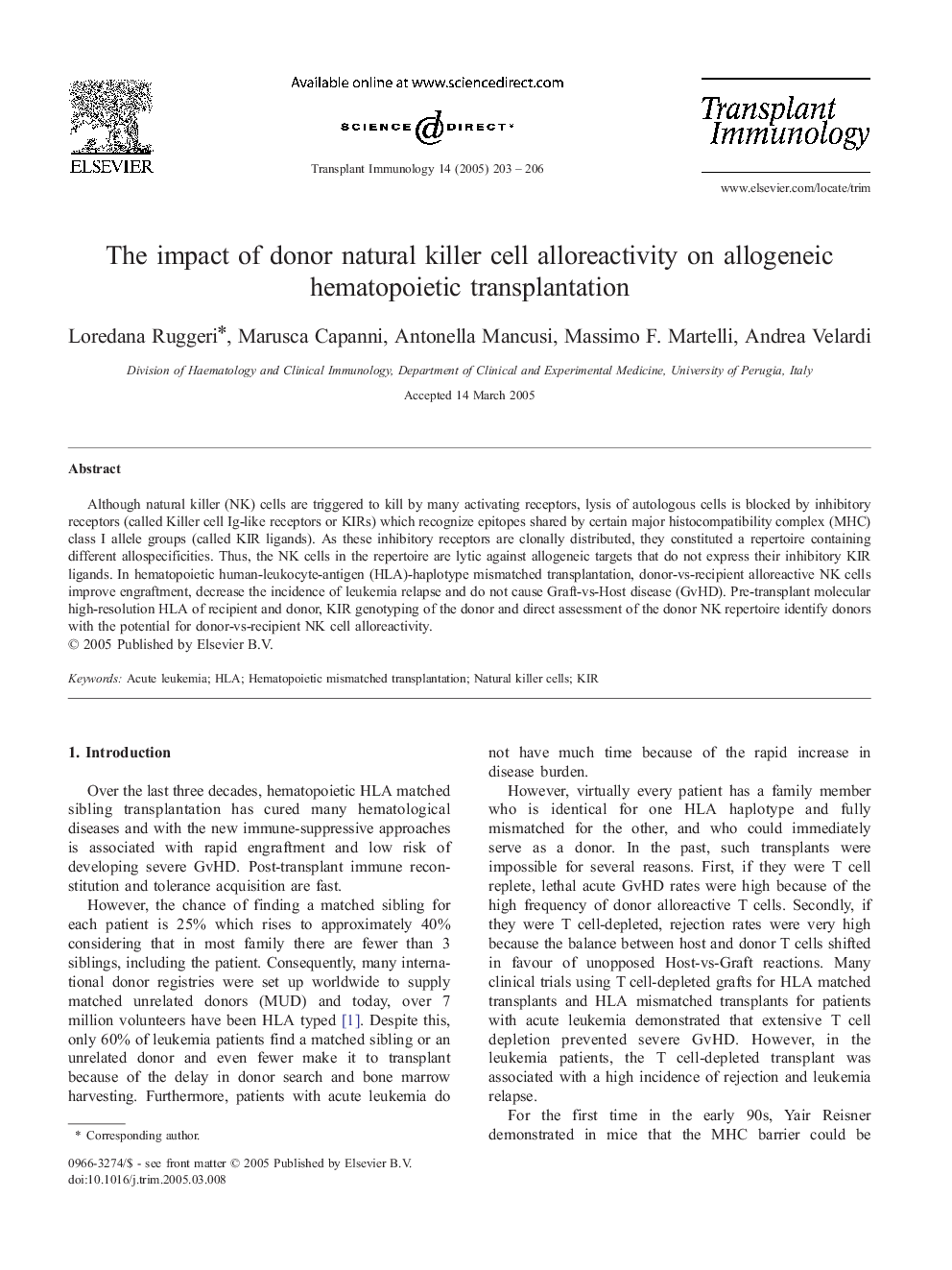| کد مقاله | کد نشریه | سال انتشار | مقاله انگلیسی | نسخه تمام متن |
|---|---|---|---|---|
| 9273802 | 1592689 | 2005 | 4 صفحه PDF | دانلود رایگان |
عنوان انگلیسی مقاله ISI
The impact of donor natural killer cell alloreactivity on allogeneic hematopoietic transplantation
دانلود مقاله + سفارش ترجمه
دانلود مقاله ISI انگلیسی
رایگان برای ایرانیان
کلمات کلیدی
موضوعات مرتبط
علوم زیستی و بیوفناوری
ایمنی شناسی و میکروب شناسی
ایمونولوژی
پیش نمایش صفحه اول مقاله

چکیده انگلیسی
Although natural killer (NK) cells are triggered to kill by many activating receptors, lysis of autologous cells is blocked by inhibitory receptors (called Killer cell Ig-like receptors or KIRs) which recognize epitopes shared by certain major histocompatibility complex (MHC) class I allele groups (called KIR ligands). As these inhibitory receptors are clonally distributed, they constituted a repertoire containing different allospecificities. Thus, the NK cells in the repertoire are lytic against allogeneic targets that do not express their inhibitory KIR ligands. In hematopoietic human-leukocyte-antigen (HLA)-haplotype mismatched transplantation, donor-vs-recipient alloreactive NK cells improve engraftment, decrease the incidence of leukemia relapse and do not cause Graft-vs-Host disease (GvHD). Pre-transplant molecular high-resolution HLA of recipient and donor, KIR genotyping of the donor and direct assessment of the donor NK repertoire identify donors with the potential for donor-vs-recipient NK cell alloreactivity.
ناشر
Database: Elsevier - ScienceDirect (ساینس دایرکت)
Journal: Transplant Immunology - Volume 14, Issues 3â4, August 2005, Pages 203-206
Journal: Transplant Immunology - Volume 14, Issues 3â4, August 2005, Pages 203-206
نویسندگان
Loredana Ruggeri, Marusca Capanni, Antonella Mancusi, Massimo F. Martelli, Andrea Velardi,